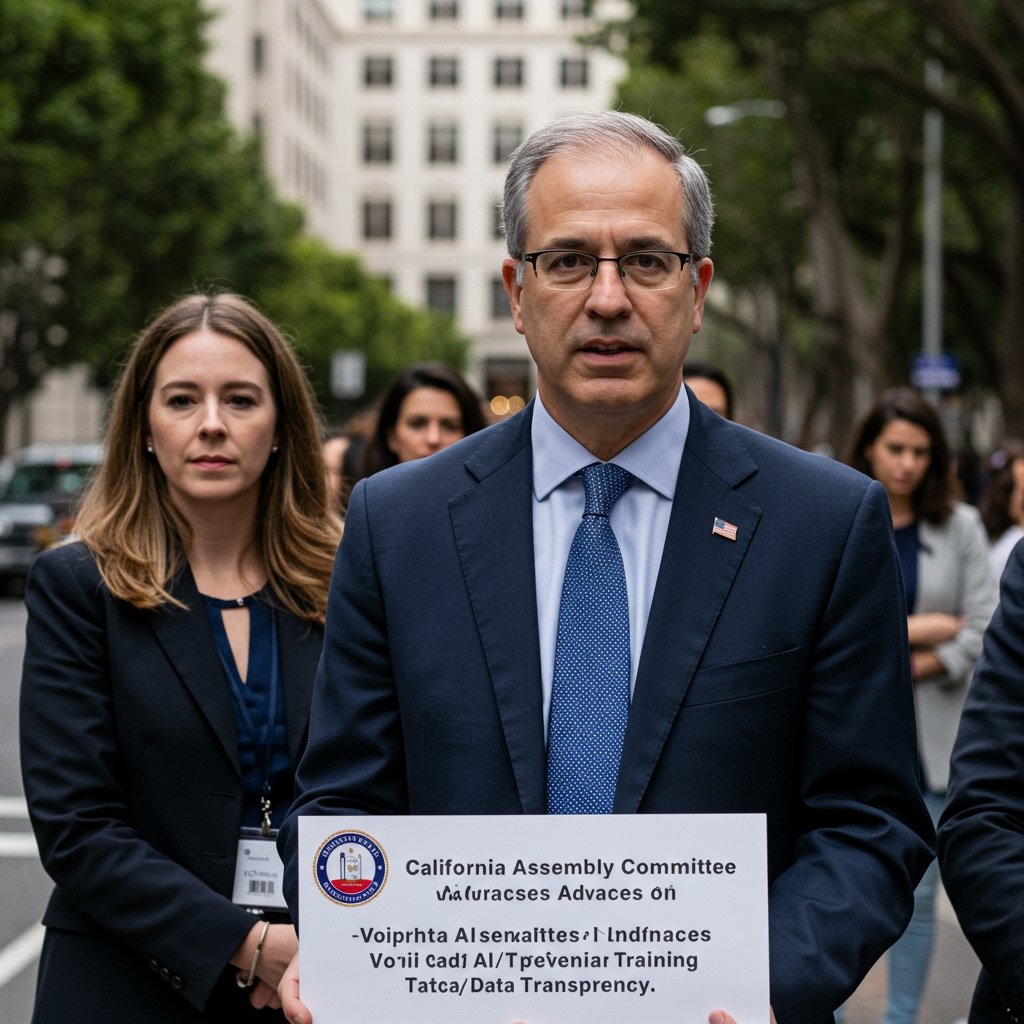California Poised to Regulate Generative AI Training Data
Sacramento, California – A significant step toward regulating the foundational elements of generative artificial intelligence was taken on February 17th when the California Assembly Privacy and Consumer Protection Committee voted to advance Assembly Bill 227 (AB 227). Sponsored by Assemblymember Sarah Chen, this proposed legislation targets the datasets used to train sophisticated AI models, aiming to introduce transparency and empower content creators in the burgeoning digital landscape.
The bill addresses a growing tension in the AI development space: the reliance of powerful generative models on massive datasets, often scraped from the internet, which frequently include copyrighted works without explicit permission or compensation. AB 227 seeks to establish clear rules for how such data is sourced and utilized, potentially setting a precedent for AI regulation across the United States.
Key Provisions of AB 227: Disclosure and Opt-Out
At its core, AB 227 proposes two principal requirements for developers of generative AI models. First, it mandates the disclosure of the source of datasets used for training. This requirement aims to lift the veil of secrecy often surrounding the proprietary training processes of AI companies, providing insight into the materials that shape these powerful technologies. Proponents argue that this transparency is crucial for accountability and for understanding potential biases or copyright infringements embedded within the AI’s training corpus.
Second, and perhaps more critically for content creators, the bill would require AI developers to provide mechanisms for content creators to opt out of having their copyrighted works utilized in training datasets. This provision directly confronts concerns from artists, writers, musicians, and other creators whose work may be ingested by AI models to generate new content that could compete with or mimic their original creations. The opt-out mechanism is intended to give creators greater control over their intellectual property in the age of generative AI, ensuring they have a choice regarding the use of their work for training purposes.
Committee Hearing Highlights: Industry Concerns vs. Creator Rights
The hearing before the Assembly Privacy and Consumer Protection Committee on February 17th was a forum for passionate debate, illustrating the complex challenges and competing interests at stake. Representatives from prominent Silicon Valley technology firms, including ByteBridge Corp. and NeuralPath Labs, testified, voicing significant concerns regarding the technical feasibility and potential ramifications of the proposed legislation.
Industry representatives argued that implementing the required disclosure and opt-out mechanisms would pose substantial technical hurdles and financial burdens. Training modern generative AI models involves processing petabytes of data collected over extended periods from diverse and often difficult-to-trace sources. Identifying and logging every single piece of data used, and subsequently building robust systems to exclude specific copyrighted works upon request, they contended, is an incredibly complex and potentially impossible task with current infrastructure and methodologies. Furthermore, they warned that such stringent requirements could stifle innovation, slow down research and development, and potentially push AI development efforts out of California, impacting the state’s leading position in the tech industry.
In contrast, advocacy groups representing content creators, artists, and intellectual property rights holders testified in strong support of AB 227. They emphasized the urgent need to protect intellectual property rights in the digital age, arguing that creators must not lose control over their work simply because it is available online. Testifying with conviction, they highlighted the potential for generative AI to devalue human creativity and livelihood if left unregulated. They argued that the ability to opt out is a fundamental right and that the tech industry must develop solutions to respect creator rights, even if technically challenging. Their testimony underscored the belief that innovation should not come at the expense of creators’ rights and that a framework is necessary to ensure fair use and potential future compensation models for data utilization.
Path Forward: Full Assembly and Beyond
Following the robust discussion and consideration of both industry concerns and creator advocacy, the Assembly Privacy and Consumer Protection Committee ultimately voted to advance Assembly Bill 227. This decision signifies that a majority of the committee members found the arguments for initiating regulation compelling enough to warrant further consideration by the full legislative body. The bill will now move to the full Assembly floor for additional debate, potential amendments, and a vote by all Assembly members.
If AB 227 successfully passes the Assembly, it will then proceed to the California State Senate, where it will undergo a similar committee review process and potentially another floor vote. The legislative journey is often complex and subject to changes as the bill moves through various stages and faces scrutiny from different stakeholders.
Potential Impact and National Precedent
The potential passage of AB 227 in California carries significant weight. As a global hub for technology and innovation, particularly in the AI sector, regulations enacted in California often have a ripple effect, influencing policy discussions and legislative efforts in other states and potentially at the federal level. If enacted, this bill could set a precedent for AI regulation nationwide, compelling companies operating across the U.S. to adapt to similar standards of data transparency and creator control.
For tech companies, especially those based in California like ByteBridge Corp. and NeuralPath Labs, the bill could necessitate substantial investments in data tracking, management, and opt-out infrastructure. For content creators, it offers a potential pathway to reclaiming agency over their digital work and ensuring that the value derived from their creations by AI models is recognized and respected. The advancement of AB 227 marks a pivotal moment in the ongoing effort to define the rules of the road for artificial intelligence, balancing the drive for innovation with the fundamental rights of creators and the need for transparency in powerful new technologies.



















